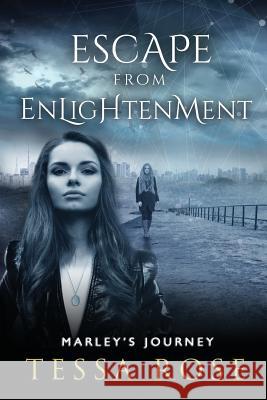Escape From Enlightenment: Marley's Journey » książka
Escape From Enlightenment: Marley's Journey
ISBN-13: 9780996534406 / Angielski / Miękka / 2015 / 270 str.
Marley is coming of age in a post apocalyptic, radically feminist society. Women have wrested all power and authority from men, who are kept in prison camps so they will never again wage wars and abuse women. Babies are incubated in artificial wombs and engineered to be attracted to their own sex. The process, however, doesn't always work. Marley worries about feeling no attraction to other girls until she meets Maddy. But she needs to win Maddy away from the odd values of a barely tolerated subculture. And Maddy would be horrified to know that Marley views illicit online pictures of boys. An interview with the author, Tessa Rose: What does the reader get from this book? Marley's Journey pulls straight readers into the experience of having unacceptable sexuality. The story unfolds into a dangerous journey for love involving boys from camps and subversives who run an underground railroad to a secret haven where heterosexuals can be safe. There is love and romance of several varieties, and a bit of sex. Readers can ponder social paradigms, indoctrination, prejudice, privilege, and what people do with power and authority. Are you advocating this radical feminist utopia? No. This would not be a utopia for me or any feminists I know. I like having men around. I found it quite easy to make the case against them, however. I'm inviting readers to think their own thoughts about power, patriarchy, and gender. Did you write this for LGBT's or straight people? I wrote it for both. For people who like getting into other people's shoes. For people who like seeing things turned around. The turnarounds can be humorous, complicated, or dark and tragic. But you've made gays the bad guys They're not the bad guys. There is gay privilege, and female privilege, and lesbians are doubly privileged. Like straight white men today, they can get away with being assholes. They can live their lives oblivious to the struggles of people who don't have their status. They can live with unchallenged assumptions. Or they can open their eyes and use their position to make life better for other people. Do you categorize this as gay science fiction? I hesitate to call it that because of the prominence of straight characters. It's speculative science fiction that looks at how people could be in a future with different conditions. One reader suggested it was political satire. I notice a lot of profanity. Yes, the city girls drop plentiful f-bombs. It's just how they talk. I can't control teenagers. What's the primary message of this book? Empathy got me into this. I put myself into someone else's shoes, and this story happened. So I guess that's the primary message. But I don't clobber the reader with a message. I hate clobbering. I created this world and these characters and then wrote a good story-entertaining, suspenseful, thrilling at times, and sexy at times, with some darkness, innocence, and humor.











